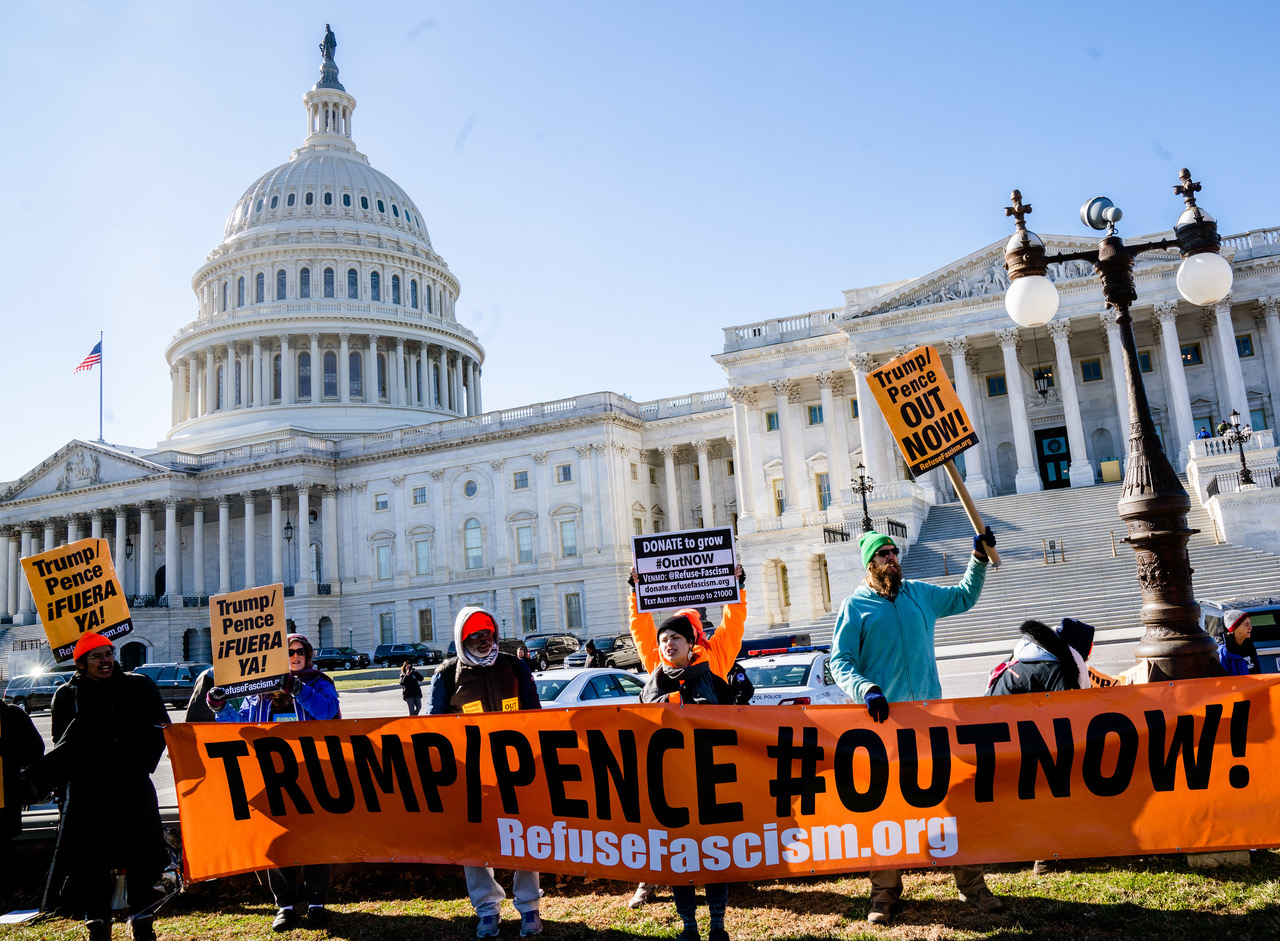Analyzing Impeachment: The Purpose Behind an Ineffective Trial

“We know how this ends. So why would we do this if we know the end of the story?” asked Michael A. Genovese. Genovese spoke at the Hammer Museum event on Jan. 29 for its event, “Impeachment, What Just Happened?” Current professors at Loyola Marymount University, both he and Jessica Levinson offered a recap and analysis of the recent impeachment trial. The event was moderated by Shaniqua McClendon, political director at Crooked Media. The conversation often returned to Genovese’s question above: if the outcome of the Senate impeachment trial is seemingly predetermined, then what is the point?
The historic impeachment proceedings started on Sept. 24, 2019 when Speaker of the House Nancy Pelosi announced an official impeachment inquiry. This was in response to a whistleblower’s claims that Donald Trump pressured the Ukrainian government to investigate his political rival, Joe Biden. On Dec. 18, 2019, the (majority Democratic) House of Representatives voted to impeach Trump on charges of abuse of power and obstruction of Congress, moving the trial to the (majority Republican) Senate. On Wednesday, Feb. 5, 2020, the Senate voted to acquit Trump, meaning he will not be removed from office.
Though this event at the Hammer occurred before the Senate voted to acquit Trump, the speakers’ clear belief that the outcome was predetermined by the partisan distribution within the Senate made for a rather pessimistic discussion of Trump’s impeachment trial. Early on, Levinson stated, “We are not in a courtroom,” regarding the trial. Rather, she described it as “political theater, emphasis on the theater,” further saying, “I really believe that one side has the facts, [it] has the law, and that side’s going to lose. And that typically does not happen in a court of law.” Here, Levinson emphasized that despite the fact that Democratic Senators rooted their case for removal in fact and law, it is nearly impossible to obtain a two-thirds majority vote in the Republican Senate. Genovese later added, “views have hardened, they haven’t changed.” In his opinion, the country has become polarized to a point where both Democratic and Republican Senators prioritize protecting their party from perceived attacks rather than protecting the country as a whole.
Trump broke the law by asking for foreign aid in the U.S. election in the form of information about his political rival. Furthermore, Trump’s reliance on racist, xenophobic, misogynistic, and hyper-nationalistic rhetoric, reminiscent of fascist dictators, throughout his political career can be viewed as a threat to American democracy. Even so, 52 out of 53 Republican Senators voted not guilty on both articles of impeachment, deciding to keep Trump in office. This outcome demonstrates Genovese’s point that Senators are now more likely to vote in favor of their party rather than vote to protect the nation in its entirety.
Despite their belief that the impeachment trial was not functioning in the way intended, the speakers made clear the trial’s importance nonetheless. Genovese emphasized that American government is complex and inefficient at times, but these traits were actually written into the constitution in order to maintain the checks and balances necessary in a democracy. Checks and balances refer to the system through which it is ensured that no single branch of American government gains too much influence. Powers are divided up between the legislative branch, judicial branch, and executive branch, and each branch has the ability to “check” the other branches if they are governing outside their bounds. In Genovese’s view, Trump’s impeachment trial demonstrated this necessary feature of American democracy.
Genovese also noted that the current impeachment trial was a “constitutionally educational moment.” By this, Genovese meant that impeachment highlights the fact that “the constitution is not a self-running mechanism” and that “it has to be brought to life by people.” To him, the trial may have the power to alert the public of what it takes to maintain a functioning democracy: elected officials who are dedicated to protecting personal liberties outlined in the Constitution. This is why it is important for those who can to do so to vote for officials who hold the president accountable for their actions in the upcoming election. While most Americans may not have the power to impeach Trump, many do hold the power to remove him from office in January of 2021 by collectively voting if they are able!




